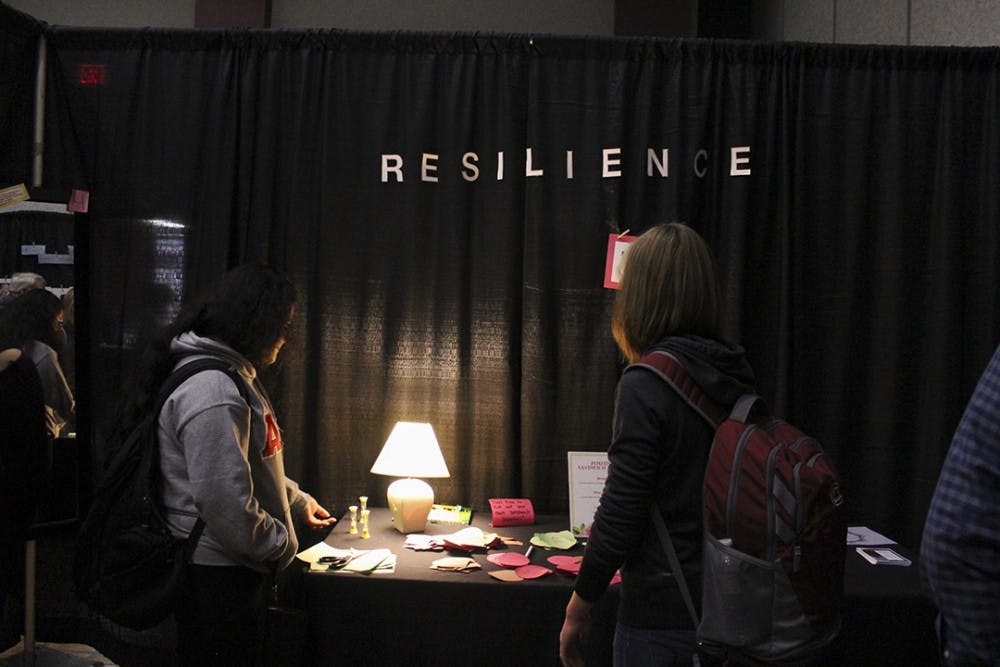The Residence Hall Association is hosting its annual Tunnel of Awareness in Russell House Ballroom from Nov. 26 to Nov. 29.
The Tunnel of Awareness is an interactive display exploring topics of diversity, social justice, mental health and inclusion, in collaboration with a wide array of student organizations.
Hilary Lichterman, associate director of residence life and the adviser to housing’s diversity and inclusion committee, helped to organize the event this year.
“The Tunnel of Awareness is an initiative that has been going on since I believe 2011,” Lichterman said. “The main purpose is truly to raise awareness about different topics that impact students and really all of us in the Carolina community.”
Students who attended were prompted to scan their CarolinaCards, take a brief online survey regarding their personal beliefs and walk through the different “rooms” of the display at their own pace.
Each of the seven rooms explored different topics from immigration to mental health to the role of social media in promoting change. The rooms also hosted interactive elements which allowed students to write their own thoughts, test their knowledge and put themselves in the shoes of others.
The mental health room of the display not only featured a wall of statistics regarding the prevalence of depression, anxiety and eating disorders in college student, but also included a table with poster boards on which students could put a check under the mental health issues which they’d struggled with. In addition, it featured a shredder for students to write down and subsequently “tear apart” their fears, insecurities or anxieties.
Graham Slater, a first-year political science student who visited the display alongside his University 101 class, spoke about the power of the event.
“It was really eye-opening,” Slater said. “There are a lot of issues there that sometimes I’m just lazy or apathetic — I don’t pay attention to them — and so it was good to hear them highlighted and interact with them especially, 'cause it made me pay attention.”
As stated at the start of the exhibit, the event was not about changing people’s opinions. The goal of the event was to educate students about issues affecting different groups, both on campus and around the world.
In addition to raising awareness, the event sought to put interested students in contact with relevant resources. Whether these resources were more personal, such as counseling at the Thompson Health Center, or concerned broader national or global social issues, the event hoped to give students the resources they needed to enact change.
Lily Frain, a third-year anthropology student, said she thought the event was important for college students in helping them understand the intensity of social problems in the world and on campus.
“When you’re in college you can get really caught up in everything that’s going on around you with your friends, with your social life, with academics," Frain said. "I feel like it’s really important to take a step back and kind of look at the world around you. A lot of kids aren’t aware of social problems going on right now."

